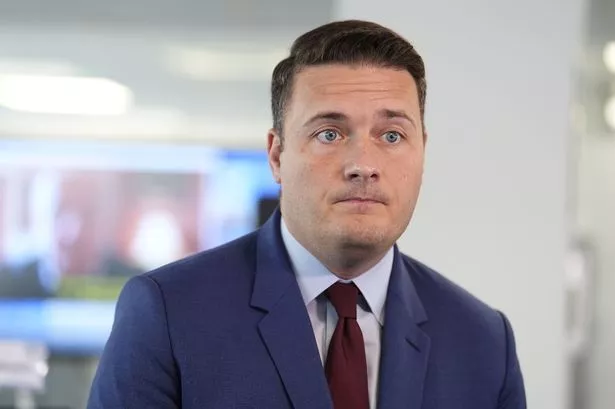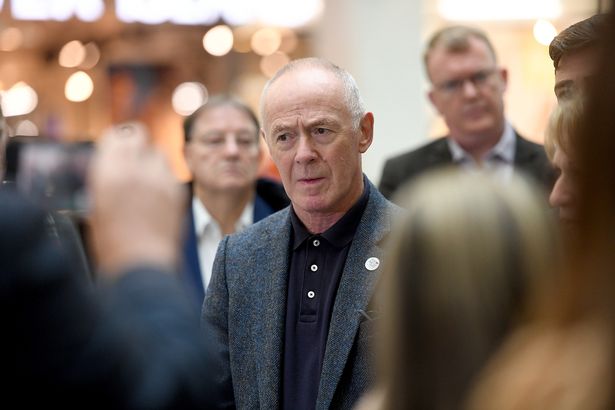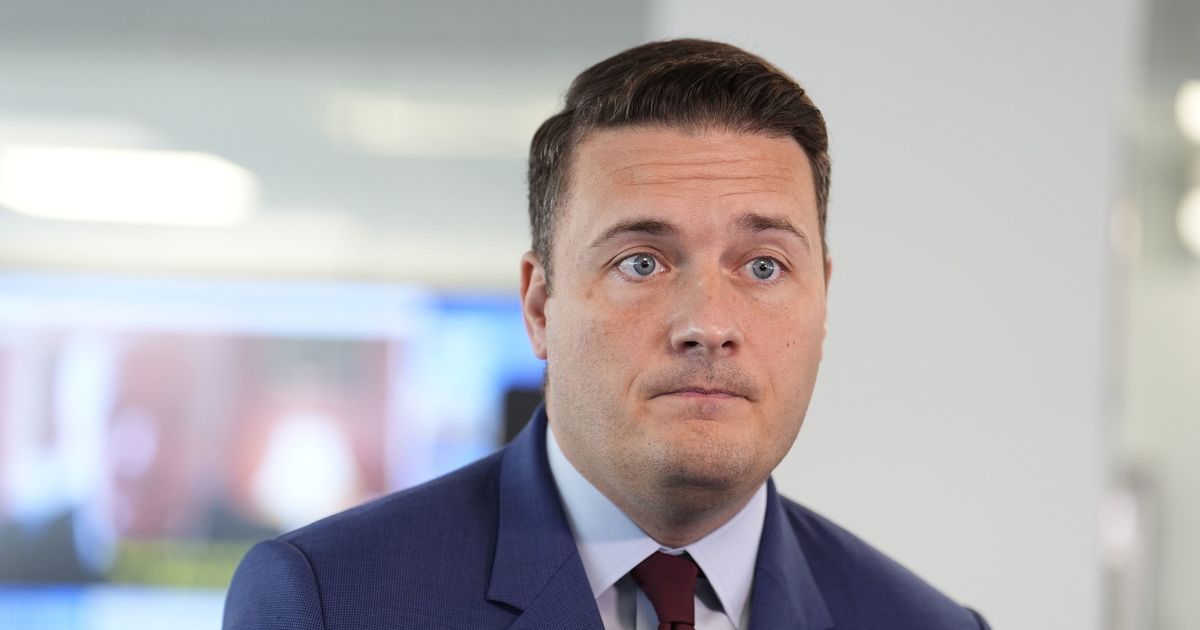‘Hopefully this will see the end to the uncertainty our staff have been facing for the last eight months’, said Greater Manchester health chief, Sir Richard Leese Health Secretary Wes Streeting (Image: PA)
Health Secretary Wes Streeting (Image: PA)
Health Secretary Wes Streeting is making a major announcement about thousands of redundancies being made across the NHS.
On Wednesday, Mr Streeting is expected to confirm that a funding settlement has now been reached for the ’50 per cent reduction in headcount’ across NHS England, the NHS’ governing body.
It comes after the 1,600-strong NHS workforce in Greater Manchester had been left with an ‘incredibly uncertain’ future as the government refused to approve a redundancy scheme, the Manchester Evening News has previously reported.
Join the Manchester Evening News WhatsApp group HERE
Some 600 NHS employees in the region who work for Greater Manchester Integrated Care Board are facing redundancy amid deep cuts being demanded by the government.
But months after announcing the reforms, national health bosses would ‘not approve’ a government-backed redundancy scheme needed for the huge savings ordered by Westminster.
For months, there was no clarity on if jobs will be lost, which jobs those might be, and when they might be lost – effectively leaving the total 1,600 staff, and their families, with no security.
The absence of information has been slammed as ‘Kafka-esque’, ‘an impossible situation’ and a ‘dreadful position for our staff’, by the region’s health leaders in recent month.
On November 12, Mr Streeting will announce at the NHS Providers Conference in Manchester that ‘funding arrangements have been agreed with HM Treasury’.
“We will not be cutting any investment to the NHS, frontline or backroom. Further detail will come forward in the coming weeks,” Mr Streeting is expected to confirm.
 Sir Richard Leese(Image: Manchester Evening News)
Sir Richard Leese(Image: Manchester Evening News)
Sir Richard Leese, chair of NHS Greater Manchester Integrated Care Board told the M.E.N. responded to the news: “We still need to see the detail, but hopefully this will see the end to the uncertainty our staff have been facing for the last eight months.
“For the ICB, losing skilled and hard-working staff is never good news, but this should allow us to fully implement our new operating model and get on with the business of improving health outcomes in Greater Manchester.”
The government announced in spring that the country’s 42 regional health boards, responsible for planning and paying for health care services, will have to lose around half of their 25,000 staff.
NHS Greater Manchester Integrated Care Board, the region’s oversight body, was told to cut its costs by 39 per cent and save £41 million from its £106m staff budget under the government’s reforms.
After the sweeping NHS cuts were announced, Mr Streeting was asked by MPs whether he recognised a reported figure that the total cost of redundancy payouts could reach £1bn nationally.
He said that it was too early to know the precise numbers, but that £1bn was not an ‘unreasonable ballpark figure’.
The government is now confirming that it will ‘deliver on the planned timetable of bringing NHS England back into the DHSC within two years – a move that will put an end to the duplication of two organisations doing the same job’.
Mr Streeting will ‘give NHS leaders the go-ahead for a 50 per cent cut to headcounts in Integrated Care Boards (ICBs) – organisations introduced in 2022, which plan health services for specific regions’.
‘It will mean they will be leaner organisations, with half their current posts removed’, the DHSC has said, adding ‘the reforms will see around 18,000 administrative posts abolished, saving more than £1bn that will be redirected to frontline patient care.
Addressing the conference at Manchester Central, Health and Social Care Secretary Wes Streeting is expected to say: “The government is protecting investment in the NHS at the Budget, worth an extra £29 billion to the health service. I want to reassure taxpayers that every penny they are being asked to pay will be spent wisely.
“We have already cut waiting lists for the first year in 15 years, recruited 2,500 more GPs, and cut ambulance waits for patients with conditions like heart attacks and strokes. Our investment to offer more services at evenings and weekends, arm staff with modern technology, and improving staff retention is working.
“At the same time, cuts to wasteful spending on things like recruitment agencies saw productivity grow by 2.4 per cent in the most recent figures – we are getting better bang for our buck.
“We’re now pushing down on the accelerator and slashing unnecessary bureaucracy, to reinvest the savings in frontline care. It won’t happen overnight, but with our investment and modernisation, we will rebuild our NHS so it is there for you when you need it once again.”
